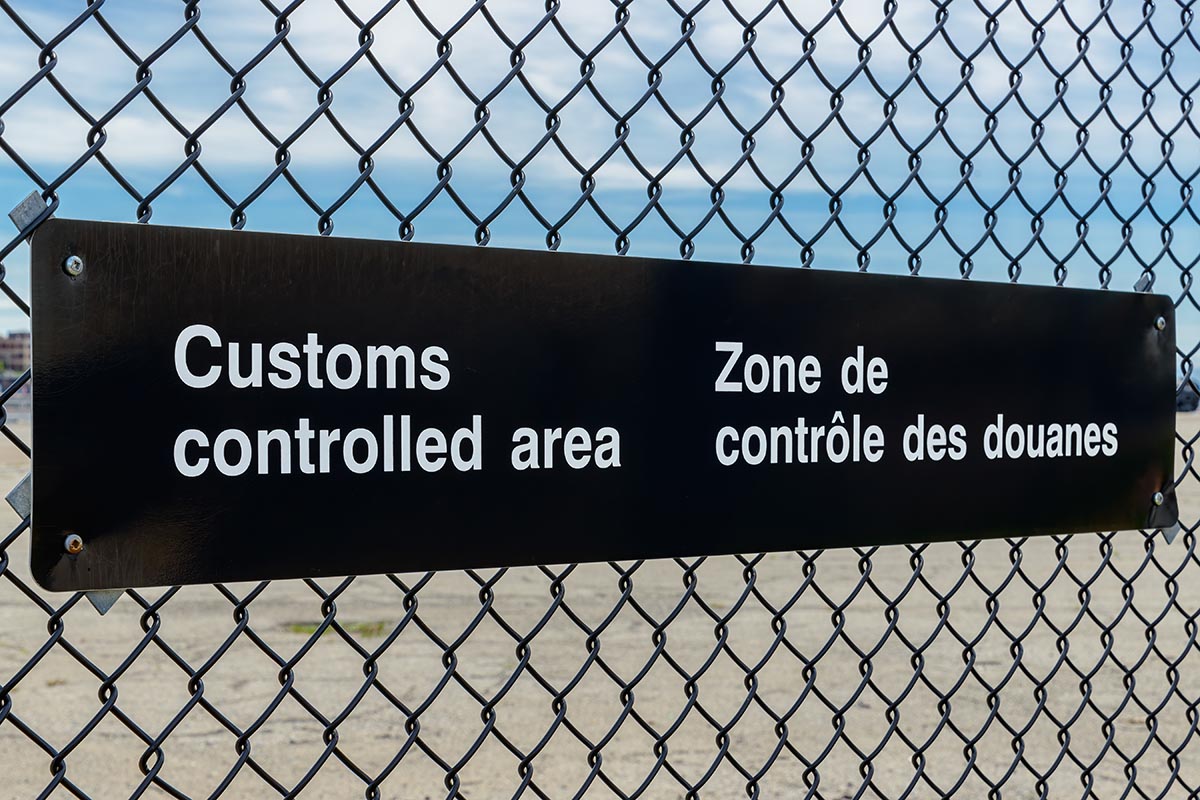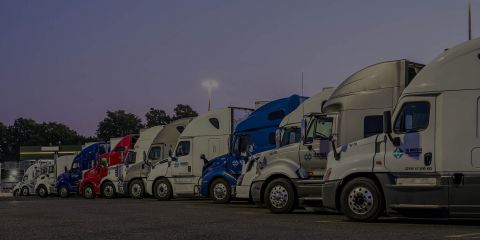
Transporting goods across the USA-Canada border is a complex undertaking that requires in-depth knowledge of customs and border security, as each country has its own rules and regulations.
In simple terms, customs authorities are agencies operated by the federal government to control the flow of goods in and out of their respective countries. Their job is to collect tariffs (import taxes) on goods such as animal livestock, vehicles, personal effects, and hazardous items.
For businesses transporting goods across the USA-Canada border, understanding the intricacies of customs regulations is a critical factor that can make or break a business’s supply chain efficiency. Whether it's your first time or your thousandth time, there are a few expert tips that make the process much smoother.
Organize & Prepare All Documentation Beforehand
To keep goods flowing without delay, having all of your documentation organized and prepared before goods arrive at the border or a bonded warehouse is critical.
Goods entering Canada require accurate, complete paperwork to ensure they clear customs without delays or penalties. The essential documents include a Bill of Lading (BOL), a Canada Customs Invoice (CCI) for commercial shipments, a Certificate of Origin if claiming preferential tariff treatment under trade agreements like NAFTA/USMCA, and a cargo control document.
Each type of document plays a pivotal role in the custom process.
- The Bill of Lading (BOL) serves as the official contract between the shipper and carrier, detailing the goods transported.
- The Canada Customs Invoice (CCI) specifies transaction details for customs assessment.
- A Certificate of Origin validates country-specific manufacturing for tariff advantages under agreements like
- NAFTA/USMCA.
- A cargo control document tracks and accounts for goods entering the country during transit.
One way to understand potential import and export tariffs is to use the Harmonized System, which shows import and export tariffs for specific goods and markets.
Being diligent when preparing this paperwork ensures that all relevant information is readily available for customs officers, leading to smoother transitions across boundaries.
Utilize Product Visibility Technology
In the world of logistics, having real-time insights into where your products are at any given moment is crucial, especially for businesses navigating Canadian customs. Advanced tracking systems monitor shipments from origin to destination in real time, providing businesses with up-to-date location data and transit times.
With GPS tracking, RFID (Radio-Frequency Identification) tags, or IoT (Internet of Things) solutions attached to the truck and shipments, you can receive instant alerts on customs clearance statuses, potential delays, and estimated delivery times.
Not only is visibility crucial for updating customers and retail chains, but it also aids in proactive planning; if a delay at customs is identified, contingency plans can be initiated rapidly to minimize the impact on supply chain schedules.
By embracing these tech tools, companies enhance customer satisfaction through reliable delivery timelines and transparency—which in turn helps maintain a positive business reputation.
Choosing Reliable Transportation Partners
A successful border cross operation depends on more than just official documentation, and picking transport services equipped with cross-border expertise is a critical step for complying with regulations.
Instead of delivering the products yourself, working with a 3PL transportation provider is recommended. They can aid in route planning to minimize shipping times and costs—and their knowledge can be invaluable in recommending transportation modes such as truckload (TL), less-than-truckload (LTL), air freight, or ocean shipping depending on shipment size and urgency.
Their experience becomes an immediate asset in planning and maintaining operations, and their additional value stands out if any issues occur at the border.
Sending Products to a Bonded Warehouse
If you are transporting goods across the border but do not need to immediately ship them to an end-consumer, a bonded warehouse is a great option. These secure facilities are authorized by the Canada Border Services Agency (CBSA) to store goods without the immediate payment of duties and taxes until they are ready for entry into the market.
Goods can still be inspected and repackaged, and this arrangement provides companies with a flexible and cost-effective solution for managing their inventory as it enables them to defer duty payments, thereby improving cash flow.
For businesses that import large volumes or have variable sales cycles, bonded warehouses let them store products near their market without incurring additional costs until items are required for distribution or sale, giving you a long-term logistical advantage that ensures compliance with customs regulations and reduces financial burden.
Partnering With Customs Brokers or 3PL Service Providers
As we said at the start, managing the customs process is arduous and best left up to the professionals, either a customs broker or a 3PL service provider.
Customs brokers act as the intermediary between a company importing or exporting goods and the government customs department, facilitating a smooth entry of products across borders. Customs brokers ensure compliance with all laws and regulations, classify goods appropriately to determine correct tariff rates and help prevent costly penalties or shipment delays.
3PL service providers are similar to custom brokers in that they understand and manage the customs process, but their services extend far beyond customs. 3PL service providers can also provide transportation, warehousing, and value-added services that enhance your supply chain.
The biggest tip we can give for managing the customs process is to work with a reputable partner. When delays can make or break the supply chain, there's no room for chance. Instead, work with an expert, and cross-border deliveries will become as easy as local deliveries.
For over 30 years, 18 Wheels Logistics has strived to be the most customer-centric trucking, warehousing, and logistics company around.
Based in Vancouver, British Columbia, Canada, 18 Wheels relies on experience and integrity to make customers happy and remain on the cutting edge of shipping and logistics management.
If you have any questions about this article or you would like to talk to us about your shipping needs, please call us at (604) 439-8938.
